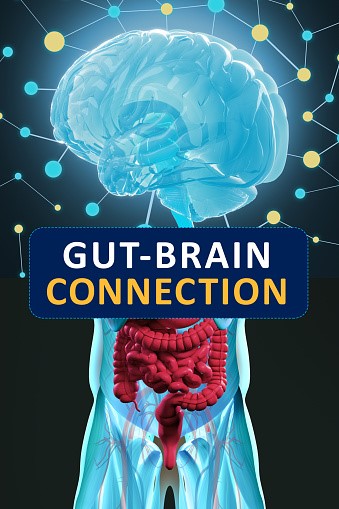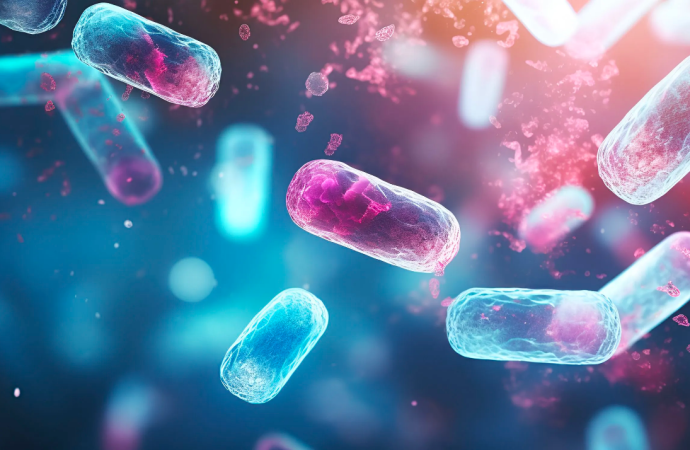In recent years, the scientific community has increasingly turned its attention to the intricate and fascinating relationship between the gut and the brain, often referred to as the “gut-brain axis.” Central to this burgeoning field of research are probiotics, the live microorganisms that, when consumed in adequate amounts, confer health benefits to the host. As
In recent years, the scientific community has increasingly turned its attention to the intricate and fascinating relationship between the gut and the brain, often referred to as the “gut-brain axis.” Central to this burgeoning field of research are probiotics, the live microorganisms that, when consumed in adequate amounts, confer health benefits to the host. As our understanding of probiotics deepens, their potential role in advancing gut-brain health becomes ever more promising, offering new insights into both mental and physical well-being.
Understanding the Gut-Brain Axis
The gut-brain axis is a complex communication network that links the emotional and cognitive centers of the brain with peripheral intestinal functions. This bidirectional communication is facilitated by neural, hormonal, and immunological pathways. The gut microbiota, a diverse community of trillions of microorganisms residing in the gastrointestinal tract, plays a pivotal role in this axis. It influences brain function and behavior through the production of neurotransmitters, modulation of immune responses, and interaction with the central nervous system.
Probiotics: The Microbial Allies
Probiotics are often dubbed “good bacteria” due to their beneficial effects on gut health. They are found in fermented foods like yogurt, kefir, and sauerkraut, and are also available as dietary supplements. The most common probiotic strains belong to the Lactobacillus and Bifidobacterium genera, though other strains are increasingly being studied for their health benefits.
The primary function of probiotics is to maintain a healthy balance of gut bacteria. They achieve this by inhibiting the growth of harmful bacteria, enhancing the gut barrier function, and modulating the host’s immune response. These actions are crucial in maintaining an optimal gut environment, which is essential for overall health.
Probiotics and Mental Health
Research has begun to uncover the potential of probiotics to influence mental health through the gut-brain axis. Several studies have suggested that probiotics may help alleviate symptoms of anxiety, depression, and stress. The mechanisms behind these effects are thought to involve the modulation of the gut microbiota, leading to changes in the production of neurotransmitters such as serotonin and gamma-aminobutyric acid (GABA), both of which are critical for mood regulation.
For instance, a study published in the journal Psychiatry Research found that participants who consumed a probiotic supplement reported reduced symptoms of depression and anxiety compared to those who took a placebo. Another study in Brain, Behavior, and Immunity highlighted that probiotics could attenuate stress-induced changes in gut microbiota composition and behavior, suggesting a potential therapeutic role for probiotics in stress management.

Picture by: Yandex.com
Probiotics and Cognitive Function
Beyond mood disorders, probiotics are also being investigated for their role in cognitive function. The gut microbiota has been implicated in neurodegenerative diseases such as Alzheimer’s and Parkinson’s. Probiotics may influence the progression of these diseases by reducing inflammation, improving gut barrier integrity, and modulating neuroinflammatory pathways.
In animal models, certain probiotic strains have been shown to enhance memory and learning abilities. Human studies, although still in their infancy, are beginning to explore these effects. A small clinical trial published in Frontiers in Aging Neuroscience demonstrated that older adults who consumed a probiotic milk drink exhibited improved cognitive function compared to those who did not.
The Mechanisms Behind Probiotics’ Effects
The beneficial effects of probiotics on gut-brain health are thought to be mediated by several mechanisms. Firstly, probiotics can influence the production and availability of neurotransmitters and neuromodulators. For example, certain strains of Lactobacillus and Bifidobacterium can produce GABA, a neurotransmitter that helps reduce neuronal excitability and is associated with calming effects.
Secondly, probiotics can modulate the immune system, reducing systemic inflammation that can negatively impact brain health. Chronic inflammation is a known risk factor for a variety of mental health disorders and neurodegenerative diseases. By promoting anti-inflammatory pathways, probiotics may help protect against these conditions.
Thirdly, probiotics can enhance the integrity of the gut barrier. A compromised gut barrier, often referred to as “leaky gut,” allows harmful substances to enter the bloodstream, potentially leading to systemic inflammation and affecting brain function. Probiotics help maintain the gut barrier by strengthening tight junctions between intestinal cells and promoting the production of mucus that lines the gut wall.
Challenges and Future Directions
Despite the promising potential of probiotics in advancing gut-brain health, several challenges remain. One major hurdle is the variability in response to probiotics among individuals. Factors such as genetic background, existing gut microbiota composition, diet, and lifestyle can influence how a person responds to probiotic supplementation. This variability underscores the need for personalized approaches in probiotic therapy.
Another challenge is the identification of specific probiotic strains that are most effective for particular health outcomes. The effects of probiotics are strain-specific, meaning that different strains can have different effects on the host. More research is needed to determine which strains are best suited for improving mental health and cognitive function.
Furthermore, while many studies have demonstrated the benefits of probiotics in animal models and small human trials, larger and more rigorous clinical trials are necessary to confirm these findings and translate them into clinical practice.
Conclusion
Probiotics represent a promising frontier in the field of gut-brain health research. As our understanding of the gut-brain axis deepens, probiotics offer a potential avenue for improving mental health, cognitive function, and overall well-being. While challenges remain, ongoing research continues to shed light on the complex interactions between probiotics, the gut microbiota, and the brain. With further investigation, probiotics may become a key component in the management of mental health disorders and neurodegenerative diseases, paving the way for innovative therapeutic strategies that harness the power of our microbial allies.
















